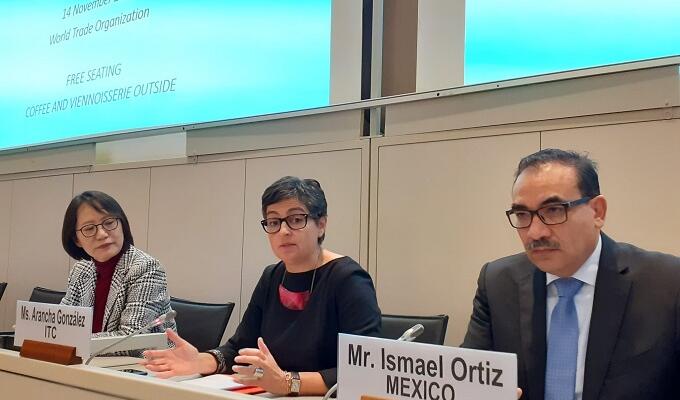

ITC Executive Director speech ED at a WTO Seminar on Domestic Regulations on Services Trade (en)
Geneva 14 November 2019
Good morning and many thanks for your invitation to discuss the importance of domestic regulations of services.
Services are the unsung heroes of today’s story of trade. In the midst of trade conflicts, technology competition, and data inoperability, services have continued to quietly dominate the trade ecosystem.
The WTO’s own World Trade Report 2019 was focused on this area and we know the facts: services provide more that 2/3 of employment in developing countries and close to 80% of employment in developed countries- and the statistics likely underrepresent the true scale- services generate more than two-thirds of global economic output. The growth rate of services trade has been higher than that of goods trade. Services is where the majority of women are employed, where the majority of SMEs are active, where the majority of the youth will find their jobs in the future.
And this is where the on-going WTO negotiations on domestic regulations of services matter. Domestic regulation is fundamentally about transparency and predictability: two elements that are a sine qua non for businesses to navigate the economy and become more competitive.
We know that improvements in domestic regulation will help primarily domestic services suppliers to get through administrative processes more easily and thus save time and resources.
We also know that improving services regulations are particularly meaningful for MSMEs, who often find it difficult to navigate through complex regulatory requirements and procedures.
And we know that from a trade perspective, regulatory practices are key for facilitating trade in services, as excessively burdensome regulations keep markets closed, not only to foreign suppliers, but also to domestic MSMEs. This may render the market openness commitments useless, and discourage potential foreign investors.
In ITC’s work on the ground, we hear many stories about how regulations are important for MSME services exports. A Kenya-based digital marketing agency, has lost out on public tenders because they were not able to submit documents online, and shipping hard copies were slow and costly; a software development company from Uganda find it difficult and financially challenging to register trademark and patent in all countries where they export. A Bangladesh company lost a valuable business opportunities because they were not able to make payments in foreign currency to their partner in the export market. These are stories of missed opportunities which a better regulatory framework could help address.
Services is 2/3 of global investment, 20% of global trade in value terms but half of global trade in value added terms. More importantly, it is the glue that connects various parts of the supply chain and enables participation in value chain production. Efficient services means efficient economies, and efficient regulation means efficient services sectors. This is why addressing domestic regulation in a comprehensive manner is critical.
Disciplines on domestic regulation at the WTO is not new topic. GATS Article 6 already provides for a set of “criteria” on the design and administration of domestic regulations, including transparency, reasonableness, objectivity, impartiality, and the avoidance of burdensome regulations, amounting to a disguised restriction to trade in services. The Telecommunications Reference Paper and the Disciplines on Accountancy have set sectoral standards.
But there are many more services sectors than telecom and accounting, therefore a horizontal agreement on domestic regulation would be important to increase regulatory coherence and facilitate cross-border trade in services.
At the national level, many countries, including those who are not yet in the joint statement, are in fact already regulating their services sectors in line with these principles. There are substantive gains from participating in this WTO process on domestic regulation. Apart from helping domestic services businesses to get off the ground, it will also send positive signals about the quality of the institution, the ease of doing business, and thus contribute to attracting investment.
I welcome the progress made by members in the negotiations on domestic regulation and encourage more members to consider joining the Joint Statement Initiative. An agreement with broad participation at MC12 will not only help improving regulatory practices and facilitate services trade, but will also demonstrate that the multilateral system remains able to provide solutions to help make global trade easier and more accessible.
Thank you for your attention.



